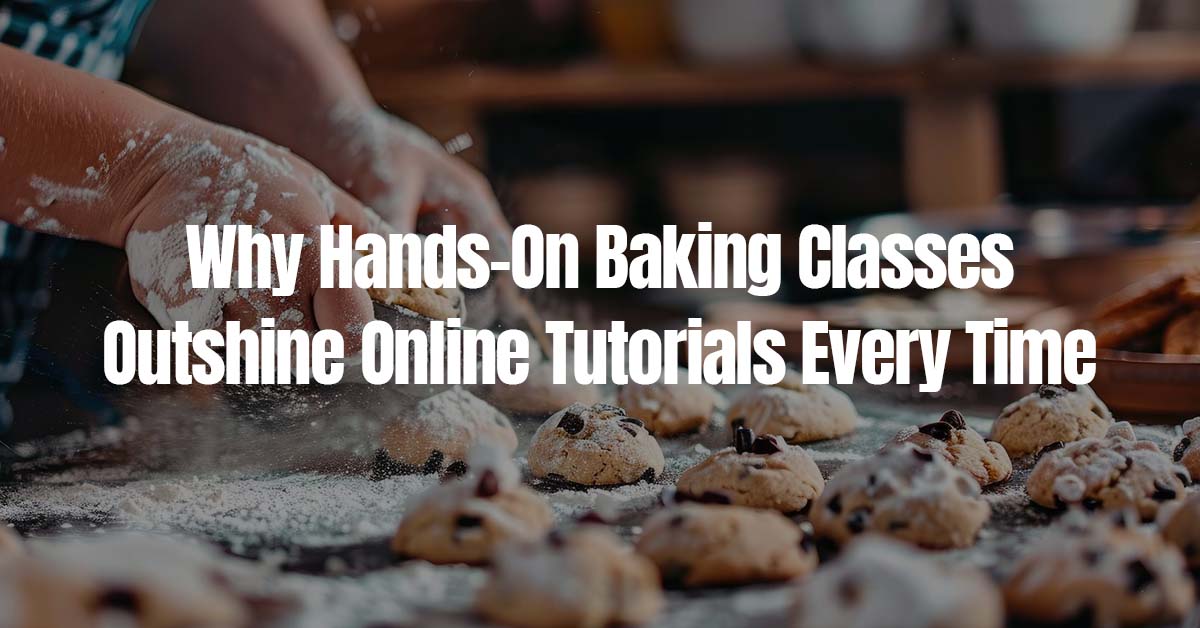The internet has made it easier to learn than ever before. With countless recipe videos and baking instructions on the web, it is easy to think that you can learn to bake right from your kitchen. Still, there is a reason that professional baking classes in Chennai still have aspiring bakers signing up for classes year after year. You learn a level of depth of the experience you will not get through online tutorials, and practical training is a whole other level compared to watching someone bake online.
The Value of Real-Time Guidance
When you take the learning path online, then you would likely pause and rewind a video to follow each step. When you take a class that is hands-on with a trainer present, they get to correct your mistakes in real-time and explain why something isn’t working. You will have real-time feedback to start students off properly instead of having to later correct bad habits that were developed.
Engaging All the Senses
Baking is not merely following measurements, it also includes a tactile sense of how dough should feel, an awareness of what it means to temper chocolate, and what meringue looks and sounds like when whisking it to soft or stiff peaks.
These experiential aspects are nearly impossible to discern when learning through a screen. While in a classroom it allows students to see, touch, smell, and taste during the process and creates a fuller learning experience.
Cultivating Confidence Through Practice
Though you could easily watch someone else bake, it’s a little more difficult if you were to try for yourself. In hands-on baking classes, the emphasis is on having students perform techniques over and over again until they gain confidence. Piping components, folding pastry and other techniques improve faster during the coaching process than one can ever do via some sort of tutorial.
Learning in Sequence versus Learning at Random.
A lot of our online baking content feels disjointed, you may learn a cake recipe today and a bread recipe tomorrow but as we do not learn in order we can easily lose track of the skills and techniques in the bigger picture. In comparison, a structured method can guide us along a course of study:
- Step by step development: Students get to understand the basics, then progress to complex skills.
- Balanced emphasis: Students learn not only about the recipe, but also about the science of baking, sensory experience, presentation of baked goods and kitchen etiquette.
- Consistency: The course is generally delivered by the same trainer so learners continue to have the same format and approach to instruction, ensuring a successful standard exercise and skill practice while they are learning outcomes.
Structure and sequence allows for the opportunity to rapidly build an incredible skill into a range of increasingly complex techniques.
Collaboration and Community
Another factor missing from online learning is community. Baking with others opens up collaboration, sharing of ideas and motivation. Students will often offer tips to one another, encourage one another and develop networks that extend beyond the classroom. While online tutorials are a great convenience, they rarely provide that level of support.
Which Path Leads to A Career?
For hobbyists, online tutorials might give you enough inspiration to put together a dessert on the weekend. But for those looking to develop a career, in-person training is still the gold standard. Employers can tell the difference between someone who followed the recipe and someone who has taken structured courses that included guided practice and evaluation by a professional.
While online tutorials can show you what baking is all about, they do not provide the depth or confidence to become a successful baker. At Zeroin Academy we provide hands-on training, provide learners with the skills, practice and mentoring to develop into bakers that can even work professionally in the baking field. When you take our baking classes in Anna Nagar, you do not just get baking skills, you get the confidence that comes from practicing in a real baking environment, something that cannot be achieved through video.


